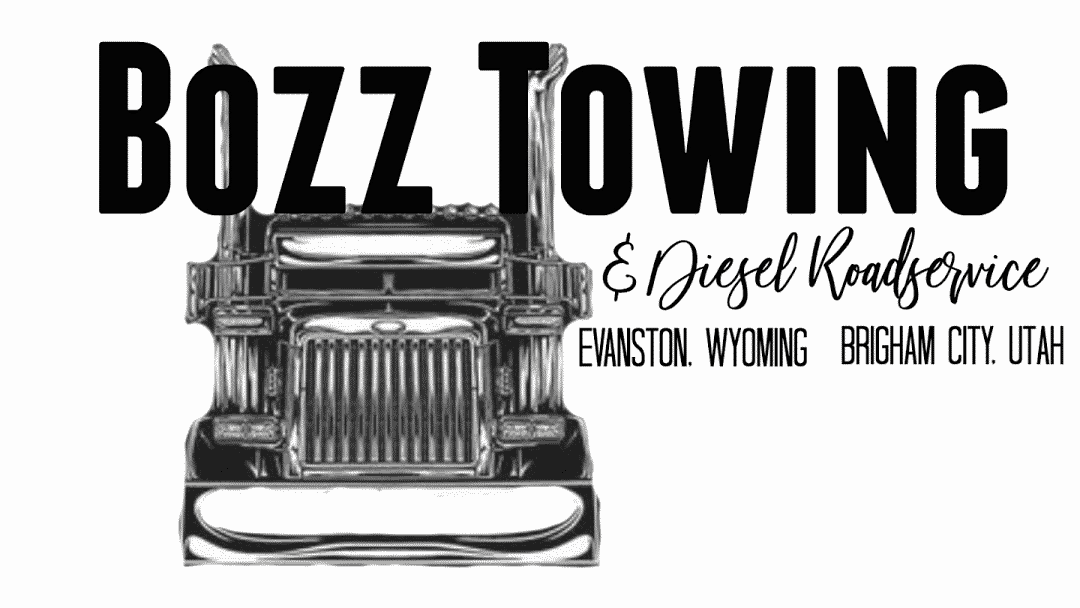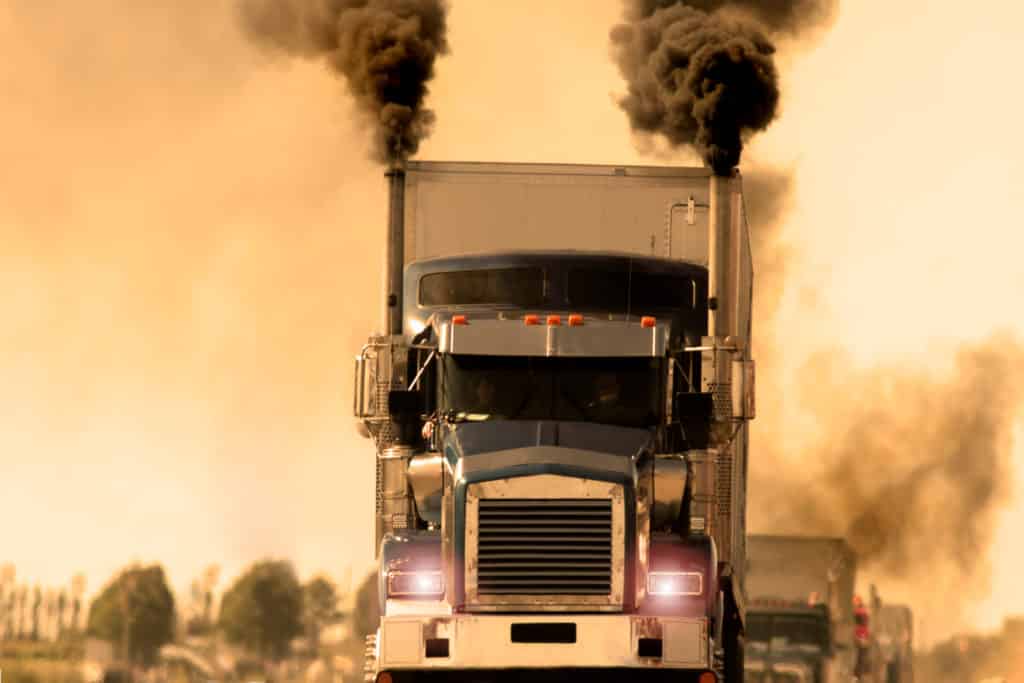If you’re a commercial driver, you know that diesel exhaust smoke can be a vital sign of trouble. In this tutorial, we’ll show you what different diesel engine smoke colors mean so that you can identify and troubleshoot any problems quickly and efficiently. Whether your rig is brand new or a well-loved veteran, it’s crucial to be able to read the signs your engine is giving you! So, let’s learn about diesel engine smoke colors and what they indicate.
White Diesel Smoke
White diesel smoke is usually the result of unburned diesel fuel. It looks like a thin, white mist and is often compared to fog or steam. However, before you assume it’s mist, check to see if the smoke is coming from your tailpipe or just condensing on the outside of the exhaust pipe. You don’t have anything to worry about if it’s the latter.
There are various reasons you’re seeing white diesel smoke coming from your tailpipe, such as:
- Engine is too cold: If your engine is cold, the diesel fuel will condense and turn into white smoke when it hits the air. This is especially common in cold weather or if you haven’t driven your rig in a while.
- Faulty injection system: If your diesel engine’s injection system is faulty, it may not deliver the right amount of fuel to the cylinders. This can cause unburned diesel fuel to be expelled through the exhaust, resulting in white smoke.
- Injectors need to be cleaned: Over time, diesel injectors can become clogged with carbon deposits. When this happens, they won’t be able to deliver the right amount of diesel fuel to the cylinders, causing unburned diesel to be expelled through the exhaust and resulting in white smoke.
- Low cylinder compression: If your diesel engine has low cylinder compression, it means the cylinders cannot compress the air/fuel mixture effectively. This can also cause unburned diesel fuel to be expelled through the exhaust, resulting in white smoke.
- Incorrect fuel injection timing: If the injection timing on your diesel engine is incorrect, unburned diesel fuel may be ejected from the exhaust, producing white smoke.
- Overheating engine: If your diesel engine is overheating, the heat can cause the diesel fuel to vaporize. This vaporized diesel fuel will then be expelled through the exhaust, resulting in white smoke.
If you see white diesel smoke coming from your tailpipe, diagnosing and fixing the problem as soon as possible is essential. White diesel smoke can lead to more severe issues, such as engine damage, if left unchecked.
Black or Gray Diesel Smoke
Black or gray diesel smoke is usually the result of too much diesel fuel being injected into the cylinders. When there’s too much diesel fuel and not enough oxygen, the diesel doesn’t have enough time to combust completely. This incomplete combustion results in soot (unburned carbon) being expelled through the exhaust, giving the smoke its black or gray color.
There are various reasons you might be seeing gray or black diesel exhaust smoke, such as:
- Leaking oil: If your diesel engine is leaking oil, it can contaminate the diesel fuel and cause black or gray smoke.
- Faulty injection system: If your diesel engine’s injection system is faulty, it may be injecting too much diesel fuel into the cylinders. This can cause incomplete combustion and black or gray smoke.
- Over-fueling: If you’re purposely over-fueling your diesel engine (i.e., adding diesel fuel to the cylinders beyond what’s needed for combustion), it can cause black or gray smoke.
- Malfunctioning fuel injector: The fuel is atomized and distributed evenly into the cylinders when the fuel injectors operate properly. Injector malfunction can cause them to fail to close correctly or become clogged, resulting in problems.
- Clogged air filter: If the air filter is clogged with dust or other particles, there won’t be enough air reaching the cylinder. As a result, more fuel will be burned, producing black smoke from the exhaust. The smoke from the car will be heavier when you put pressure on it. When you accelerate quickly or tow something heavy, more black smoke might come out of the tailpipe.
If you notice black or gray smoke coming from your diesel engine, it’s important to have it checked out as soon as possible. Incomplete combustion can lead to a build-up of soot in the cylinders, damaging the engine.
Blue Diesel Smoke
If you see blue diesel smoke coming from your tailpipe, it usually indicates that your engine is burning oil. This is because when oil gets into the cylinders and is burned along with diesel fuel, it produces a blue color.
There are various reasons why oil might be getting into the cylinders on a diesel engine, such as:
- High engine oil levels: If the engine oil level is too high, it can enter the cylinders.
- Worn piston rings: If the piston rings are worn, they might not create a tight seal between the piston and cylinder. This can allow oil to leak into the cylinders and be burned along with diesel fuel.
- Worn cylinder walls: If the cylinder walls are worn, it can also cause oil to leak into the cylinders.
- Faulty valve seals: The valve seals keep oil from leaking into the cylinders. If they’re worn or damaged, oil can enter the cylinders and be burned.
- Old valves or cylinders: Over time, the valves and cylinders can wear out and develop cracks. This can also allow oil to enter the cylinders.
While blue smoke is a rarer diesel engine problem, diagnosing and fixing it as soon as possible is still important.
While not every instance of diesel engine smoke is cause for alarm, it’s crucial to identify the different colors and what they might indicate. And while these are only a few reasons why each color might appear, if you’re noticing any of these diesel engine smoke colors, it’s always best to have it checked out by a professional.
Keep Your Semi Truck on the Road with Our Help
At Bozz Towing, we understand that diesel engine problems can be a major setback for truckers. That’s why we offer roadside assistance and diesel truck repair services to help you get back on the road as quickly as possible.
If your diesel engine exhaust/smoke indicates that you need maintenance, you should take your rig in for service ASAP. Bring your rig into our shop in Utah or Wyoming, and we’ll take care of it for you. Contact us today to schedule a diesel engine repair appointment.

